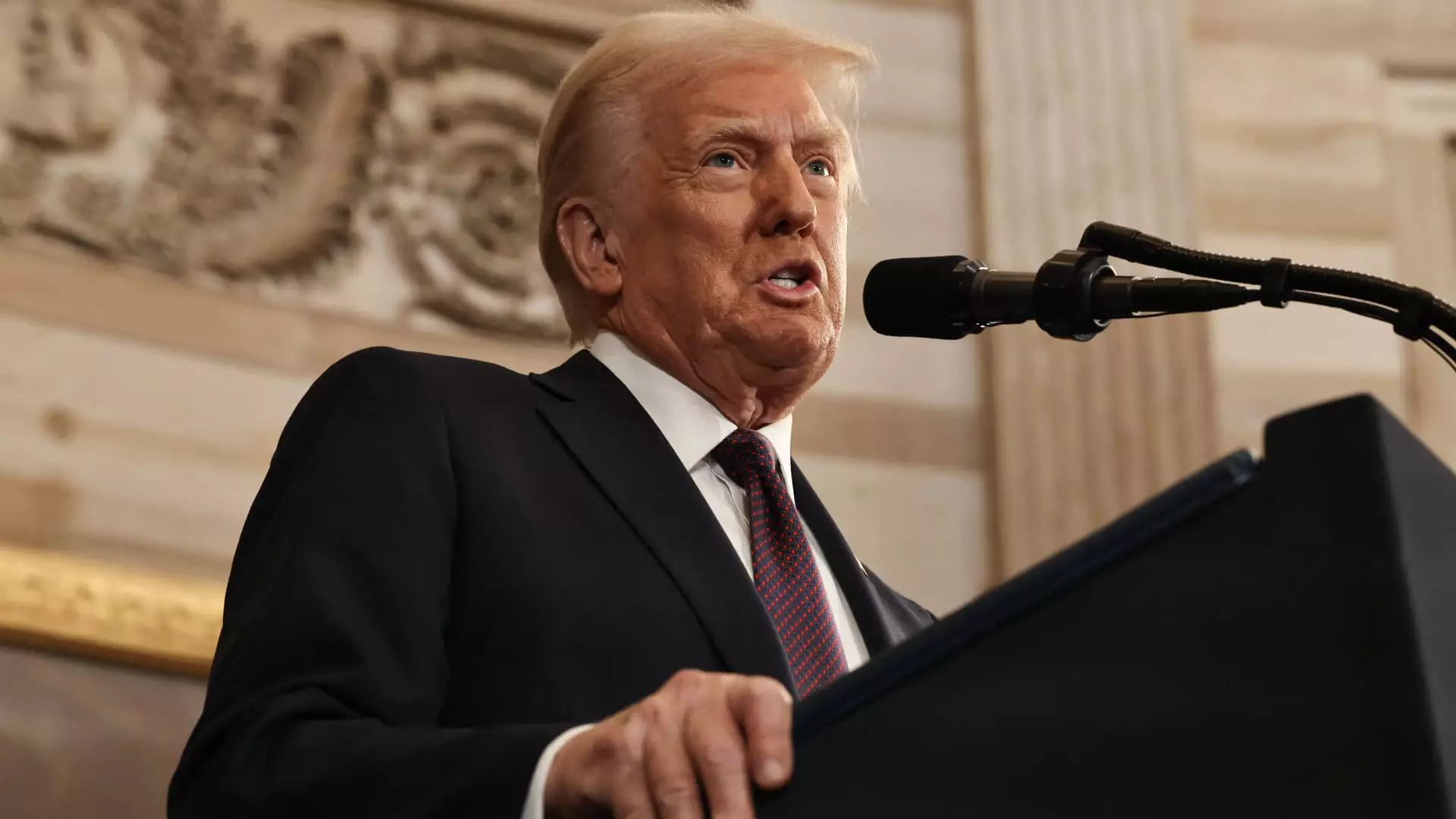When Donald Trump ascended to the presidency, he wrapped himself in the mantle of a peacemaker. With a passionate voice, he claimed that his administration would herald a new era of diplomacy, shunning the wars that have plagued the Middle East for decades. Yet, with the airstrikes against Iran, it seems we are witnessing the unraveling of that very ideal. Promises made in Trump’s inauguration echo in stark contrast to the smoky aftermath of military engagement, and one must ponder: What happens to the image of a unifying leader when their actions starkly oppose their words?
In a striking moment from January 20, 2025, Trump proclaimed, “We will measure our success not only by the battles we win but also by the wars that we end— and perhaps most importantly, the wars we never get into.” Rhetoric such as this filled his supporters with hope for a nation tired of endless conflict. However, the missile launches that targeted Iran’s nuclear sites in Fordo, Natanz, and Isfahan mark a jaw-dropping departure from this vision. It is as if each bomb dropped reads like a betrayal of those ideals, shattering any illusion of diplomatic resolutions.
A Conflicted Stance
It’s vital to examine the complexities engulfing these military actions. Just days before the strikes, Trump seemed to pivot toward diplomatic negotiations, suggesting a two-week window to evaluate Iran’s response. His sudden shift to aggressive military action prompts a wave of skepticism: is this the behavior of a leader seeking peace, or a figure caught in an existential dilemma, unable to deliver on his lofty promises? The ability to project strength through military prowess is a double-edged sword. Leaders must eliminate their adversaries without losing their moral compass. It’s a fine line, and unfortunately, Trump appears to have crossed it, diving headfirst into military engagement where he once vowed restraint.
His previous statements reveal an alarming inconsistency. At a rally in Pennsylvania last November, Trump criticized his predecessors and warned of an imminent World War III, entreating his supporters with a promise to “stop the chaos in the Middle East.” Yet, the chaos seems to have sprung from his own hand. The irony here is palpable: a supposed peacemaker delivering America into a new chapter of conflict. These actions are more than an assault on Iranian soil; they symbolize a significant failure of the very promises he let resonate in the ears of an eager public.
The Fallout of Broken Promises
As news outlets report Iranian casualties and extensive infrastructure damage, it becomes increasingly clear that the consequences of this military intervention stretch far beyond immediate loss. The fallout from such strikes will ripple through international relations, creating a deeper animosity and escalating hostilities rather than curbing them. Trump often cites his withdrawal from the Joint Comprehensive Plan of Action (JCPOA) in 2018 as a cornerstone of his diplomatic strategy—yet how does launching attacks serve the cause of peace?
One cannot ignore the historical context surrounding U.S.-Iran relations, marred by deception and betrayal. It begs the question: is the successor to the Abraham Accords merely an example of failed diplomacy? By forsaking the delicate balance of negotiation in favor of military action, Trump jeopardizes not only his claims of leadership but the safety and security of countless lives across the globe.
A Provocation for Further Conflict?
The current trajectory suggests that not only are Trump’s self-styled peacemaking efforts collapsing, but they risk igniting a new cycle of vengeance. Politics are often a game of perception; Trump’s rhetoric may resonate with a subset of Americans who are staunchly pro-military, but it raises alarms for more moderate voices. Within the political arena, one can no longer ignore the irrefutable tension building between the U.S. and countries like Iran. Are we edging closer to widespread conflict rather than achieving the stable Middle East that was promised?
Increasingly aggressive stances threaten progress and lend credibility to militant narratives that favor retaliation over diplomacy. The age-old cycle of “an eye for an eye” has now been revitalized by the overshadowing reality that the peacemaker himself may have fanned the flames of war. As we stand at this cogent juncture, the question isn’t merely about military prowess or strength; it revolves around moral integrity and the legacy one wishes to leave behind.
In the grand tapestry of leadership, clarity of vision and steadfastness to promises made are vital. However, when actions starkly reveal contradictions, the role of a peacemaker is rendered meaningless, exposing the stark reality where words and actions align in a destructive choreography.

Leave a Reply